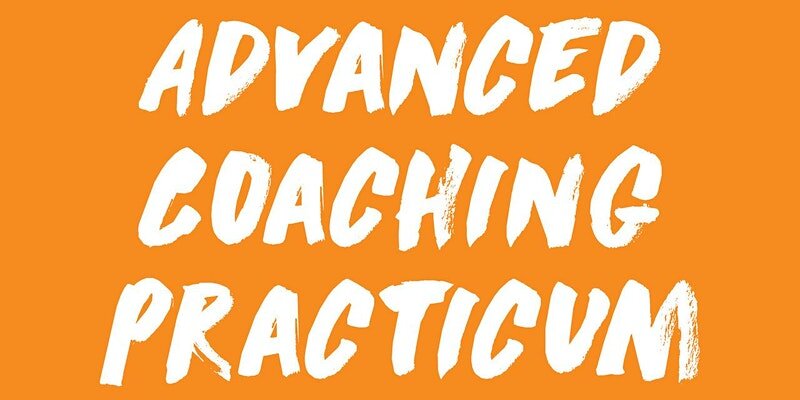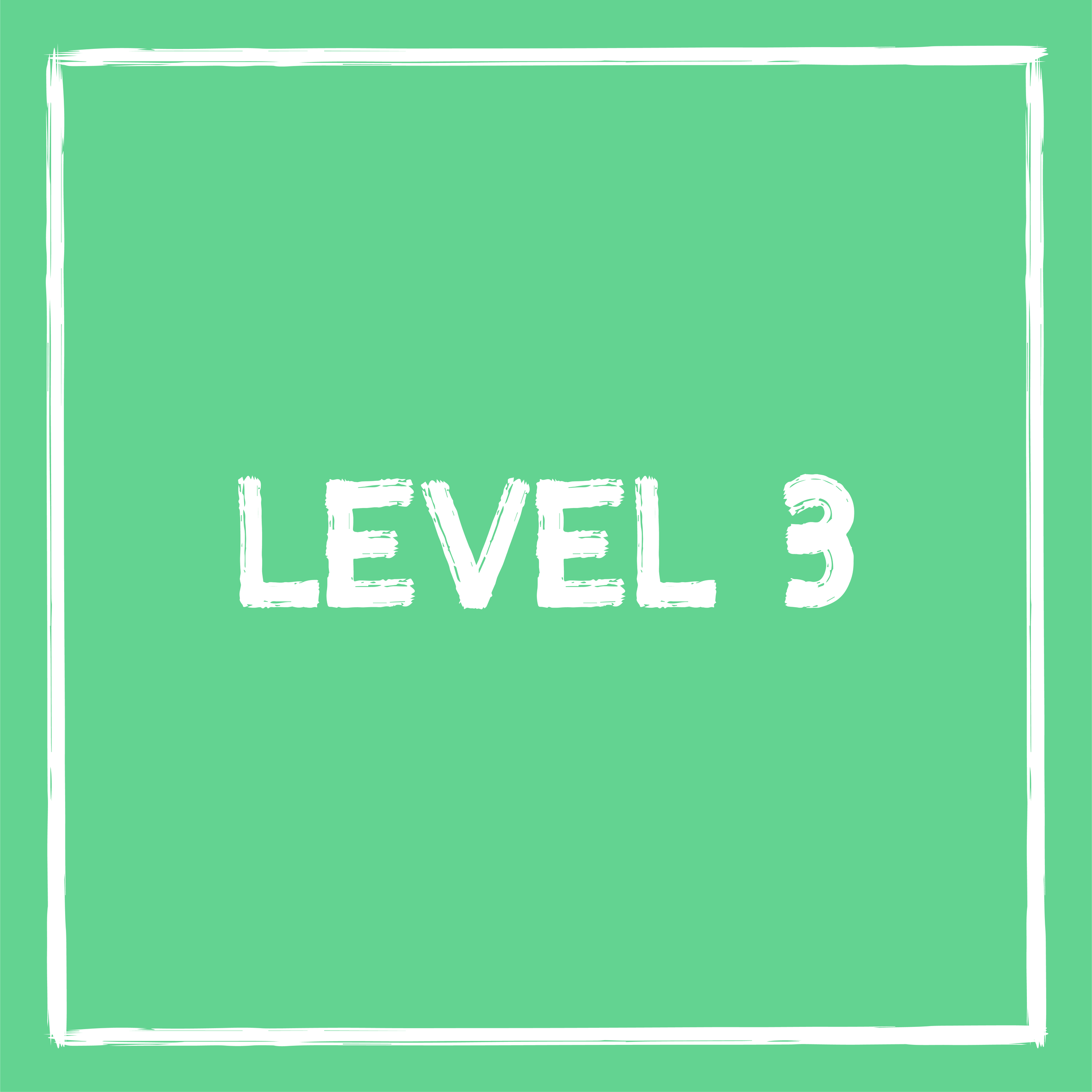
Advanced Coaching Program Calendar
Great coaches practice here. Register for single course tracks or sign up for complete class packs.
(note: all class times US Eastern Time)
Registration is NOW OPEN for Season 13 .
Flexible start dates. Begin your journey today!

215: Ethical Maturity Part Two
Following participation in 204: Ethical Maturity Part One - Part 2 will deepen the exploration using Michael Carroll’s lens of ethical maturity with a reflective practice based on cases brought by participants.

214: Ethical Maturity Part One
On the surface, a code of ethics is fairly straightforward. In practice, it can be messier. In this 2 hour session, we will explore real ethical dilemmas participating coaches face in their practice, using Michael Carroll’s lens of ethical maturity. This is defined as “having the reflective, rational, emotional and intuitive capacity to decide whether actions are right and wrong or good and better, having the resilience and courage to implement those decisions, being accountable for ethical decisions made (publicly or privately), and being able to learn from and live with the experience(s)” (in Erik de Haan Supervision in Action 2012). An assignment will be given to all participants in order to prepare for Part Two on 24th June!

M6: Group Mentor Coaching
This class is for participants who already have at least two current coaching assignments. Mentor coaching is a combination of listening to the coach describe their coaching challenges and an open forum for questions either about core competencies or ancillary topics such as building a coaching business. This is a required course for anyone seeking certification. Be prepared to discuss your coaching clients in a confidential way and clarify what skills you want to build in your own coaching.

213: Introduction to Compassionate Systems Part Three
Jane Drake, Roger Burton and Suchitra Sarda will host a set of three 90 minute conversations about Compassionate Systems. The sessions will include Master Practitioners from the Center for Systems Awareness (https://www.systemsawareness.org/ ) exploring tools, practices and sharing stories together with the Integral Community.

212: Presence with Joseph DiCenso
Technique, tools, knowledge and experience all contribute to our effectiveness as coaches. Alone, they do not allow us to gain the trust of our client and create the “container” in which they will choose to explore their depths with vulnerability and courage. For this, presence is needed. In this class, we will explore what presence is and what practices, self-talk and conditions support us bringing profound and “effortless” presence to our coaching.


211: Introduction to Compassionate Systems Part Two
Jane Drake, Roger Burton and Suchitra Sarda will host a set of three 90 minute conversations about Compassionate Systems. The sessions will include Master Practitioners from the Center for Systems Awareness (https://www.systemsawareness.org/ ) exploring tools, practices and sharing stories together with the Integral Community.

M4: Group Mentor Coaching
This class is for participants who already have at least two current coaching assignments. Mentor coaching is a combination of listening to the coach describe their coaching challenges and an open forum for questions either about core competencies or ancillary topics such as building a coaching business. This is a required course for anyone seeking certification. Be prepared to discuss your coaching clients in a confidential way and clarify what skills you want to build in your own coaching.

210: Practical Applications of Ontology for Leaders and Teams:
When working with Leaders and Teams, there is a strong temptation to slip into providing advice rather than providing coaching. However, with even the most challenging leaders and teams, the basic Ontological Approach for Coaching remains a powerful guide. We will review the basics of the Ontological Approach for Coaching, then together look at strategies and designs that can help us ground our coaching strengths.

M3: Group Mentor Coaching
This class is for participants who already have at least two current coaching assignments. Mentor coaching is a combination of listening to the coach describe their coaching challenges and an open forum for questions either about core competencies or ancillary topics such as building a coaching business. This is a required course for anyone seeking certification. Be prepared to discusss your coaching clients in a confidential way and clarify what skills you want to build in your own coaching.

209: Introduction to Compassionate Systems Part One
Jane Drake, Roger Burton and Suchitra Sarda will host a set of three 90 minute conversations about Compassionate Systems. The sessions will include Master Practitioners from the Center for Systems Awareness (https://www.systemsawareness.org/ ) exploring tools, practices and sharing stories together with the Integral Community.

208: Spiraling Up
Many coaches struggle with finding a stream of clients. I have experience in keeping clients for many years--one client for 20 years. If you feel like you run out of steam with your clients, there are ways to keep it "fresh" over time. Client retention helps keep your coaching practice full.

207: Coaching to Trust
In his endorsement of The Thin Book of Trust, Stephen M.R. Covey calls trust “…the foundation of everything we do and the key leadership competency of the new global economy.” Trust-building is a competency that can be learned, developed, and practiced. This ACP session will focus on how through coaching we can support our clients in becoming skillful at building, maintaining, and when necessary restoring trust at work.

M2: Group Mentor Coaching
This class is for participants who already have at least two current coaching assignments. Mentor coaching is a combination of listening to the coach describe their coaching challenges and an open forum for questions either about core competencies or ancillary topics such as building a coaching business. This is a required course for anyone seeking certification. Be prepared to discuss your coaching clients in a confidential way and clarify what skills you want to build in your own coaching.

206: Experiment Kata
Kata is a Japanese word (型 or 形) meaning "form". It refers to a detailed choreographed pattern of martial arts movements made to be practiced alone. The Experiment Kata is a repeatable set of 5 coaching questions--a way of approaching client stuckness as a practice and part of the book The Experimental Leader: Be a New Kind of Boss to Cultivate an Organization of Innovators. This class is taught by the author and will teach these questions and give an opportunity to practice them as well as digging more deeply into the reasons they work while more deeply understanding the client’s desired future, and how to break down barriers to get there.

205: Latest Research in Neuroscience and Coaching (with Ann Betz) Part Three
Where is Intuition? In this session, we’ll explore the multi-faceted “Intuition System,” which includes multiple aspects of the brain, the body, and even the quantum field itself. Session includes a self-assessment and practical strategies for increasing each aspect of this system.

204: Working with the Body (Yours and Theirs)
Our somatic experience – what happens in our bodies – is as important to forming the observers as are our thoughts and emotions. In coaching, attending to “the body”, our client’s and our own, is a powerful avenue for discovery, learning, and growth. Our client's thoughts and emotions are held in, shaped by, and expressed through their bodies, which have their own wordless wisdom. Coaching to the client’s somatic experience can accelerate their ability to find liberating new perspectives and make meaningful changes in their lives. In this session, we will explore the links between body, thought, and emotion, how to bring the client’s attention to their somatic experience in useful ways, how to support them in learning through the body, and how to use our own body experience effectively in our coaching.

203: Latest Research in Neuroscience and Coaching (with Ann Betz) Part Two
What Are You Predicting? In this session, we’ll look at the cutting-edge neuroscience of emotions, exploring the role of prediction (versus reaction) and how to use this effectively as a coach. Session includes a powerful new coaching tool.

M1: Group Mentor Coaching
This class is for participants who already have at least two current coaching assignments. Mentor coaching is a combination of listening to the coach describe their coaching challenges and an open forum for questions either about core competencies or ancillary topics such as building a coaching business. This is a required course for anyone seeking certification. Be prepared to discuss your coaching clients in a confidential way and clarify what skills you want to build in your own coaching.

202: Deepening Your Ontological Skills (with Libby Robinson)
This class is for experienced ontological coaches that want to become more masterful with their ontological distinctions. In this class we will have a chance to watch some live coaching from within the group as well as Libby coach live and break the 4th wall - commenting on her coaching as she does it. Then the group will debrief and share learnings. The objective is that each coach gains new courage to enter different ontological doorways.

201: Latest Research in Neuroscience and Coaching (with Ann Betz) Part One
The Neuroscience of Less Typical Coaching Strategies—why some of the more “out there” things in coaching are often the most effective, and how to easily talk with your clients about them so that they engage more readily. In this session we’ll explore the neuroscience of using embodiment, metaphor, images, multi-sensory strategies, play, humor, and more. Session includes a simple coaching strategy for increasing client’s awareness of their somatic intelligence.






